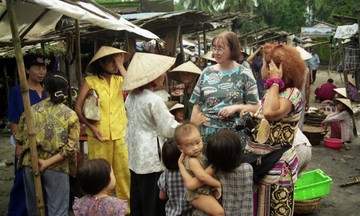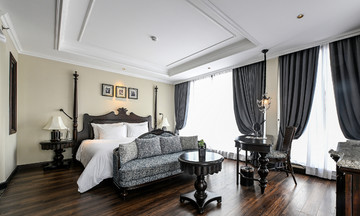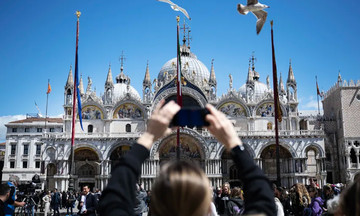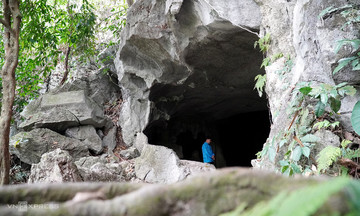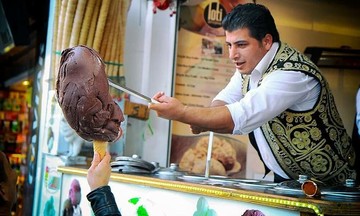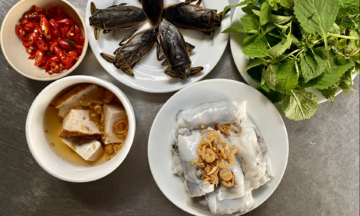While not all Vietnamese tourists exhibit these behaviors, some common ones create a negative image among international communities.
Based on their experiences, two seasoned travel experts, Lam Nguyen, a former lecturer in international tourism at Hanoi University who has visited about 60 countries, and Phan Lam, a former Nikkei journalist and tour guide with 20 years of experience across 70 countries and territories, share some recurring issues.
Bringing outside food into restaurants
Phan Lam notes that many restaurants worldwide prohibit bringing in outside food. This can be seen as disrespectful to the chef and their culinary skills. Furthermore, restaurants bear a high level of responsibility for their patrons' well-being and can face severe penalties if a customer experiences health issues, such as food poisoning.
In his 2021 book, "Virtual life, real journey," published by The Gioi Publishers, Lam Nguyen writes, "Many Vietnamese people are not accustomed to Western cuisine and often bring along their own condiments and instant noodles. This puts both restaurant staff and tour guides in an awkward position. Guides often have to explain the restaurant's policy or become impromptu waiters, providing extra plates for these items." He suggests that Vietnamese tourists could handle this more gracefully by enjoying additional meals elsewhere or upon returning to their hotels.
Food waste and untidiness
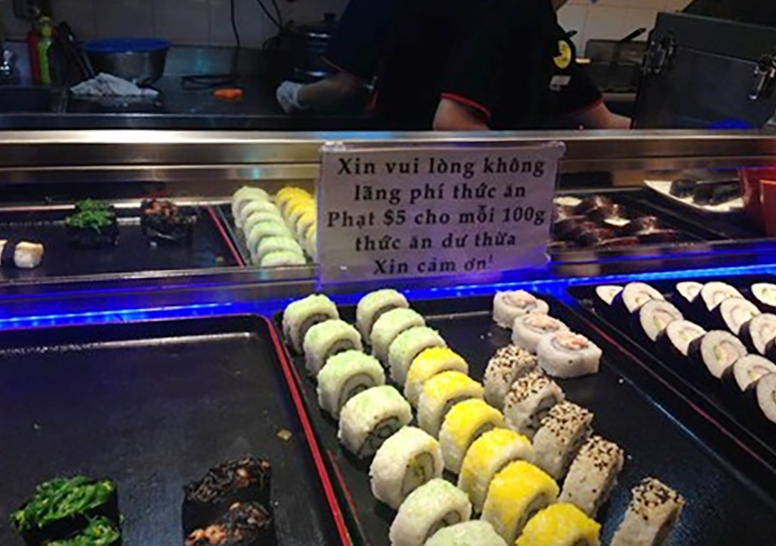 |
A sign reminding Vietnamese guests at a restaurant in Singapore. Photo: FB musician Nguyen Hong Thuan. |
A sign reminding Vietnamese guests at a restaurant in Singapore. Photo: FB musician Nguyen Hong Thuan.
Food waste is a significant problem in modern society. According to a 2024 survey, Vietnam ranks second globally in food waste, with over 8 million tons discarded annually, resulting in a loss of 3.9 billion USD. This issue persists even when Vietnamese tourists travel abroad. Some buffet restaurants in Thailand and Singapore, popular destinations for Vietnamese tour groups, display signs in Vietnamese like "Take only what you can eat" or "Don't waste food" due to excessive leftovers.
In hotels, many guests leave rooms in a state of disarray after checking out, despite the availability of trash bins. Similar untidiness occurs in restaurants, beaches, and recreational areas.
Excessive demands
In the same book, Lam Nguyen describes how tour guides often struggle to eat during meal times with large groups that have picky eaters or those unable to adapt to local cuisine. They face numerous requests, demands, and conflicts that arise in restaurants.
"Many guests complain about prices in restaurants even when they are clearly listed, making staff run back and forth to fetch various items without expressing gratitude and sometimes even displaying rudeness," Lam says.
Many travel agencies provide guidebooks and codes of conduct to tourists before tours, some even organizing detailed meetings. However, explaining a different culture comprehensively within a guidebook or a single meeting is nearly impossible.
Disregard for local laws
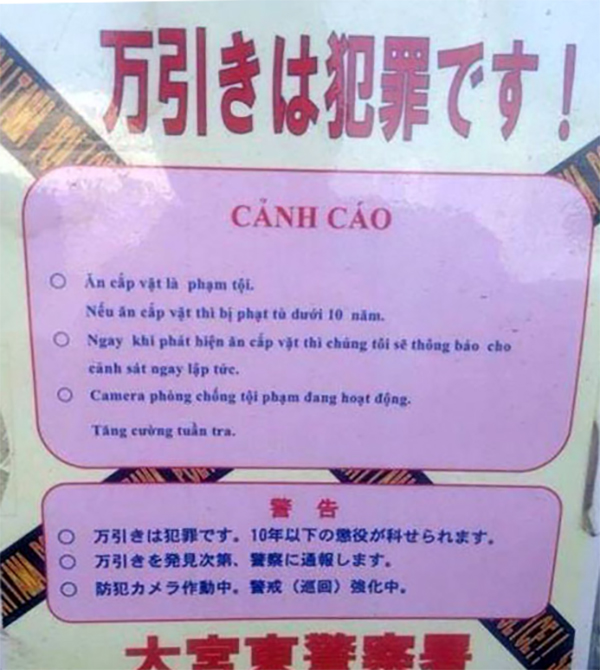 |
A picture shared by Vietnamese students in Saitama city (Japan) in 2015. |
Developed countries often prioritize civic responsibility, relying less on on-site staff and more on remote camera surveillance. Some Vietnamese tourists exploit this leniency at train and bus stations, dodging fares or purchasing cheaper tickets (like children's tickets) as seen on the London Underground (UK).
Theft is also relatively common in hotels and supermarkets. Over a year ago, Japanese police arrested 4 Vietnamese individuals accused of multiple thefts at Uniqlo clothing stores, totaling approximately 135,000 USD. Earlier, in 2018, Taiwanese police arrested a group of Vietnamese tourists for shoplifting, confiscating over 30,000 USD worth of goods.
Lack of public etiquette
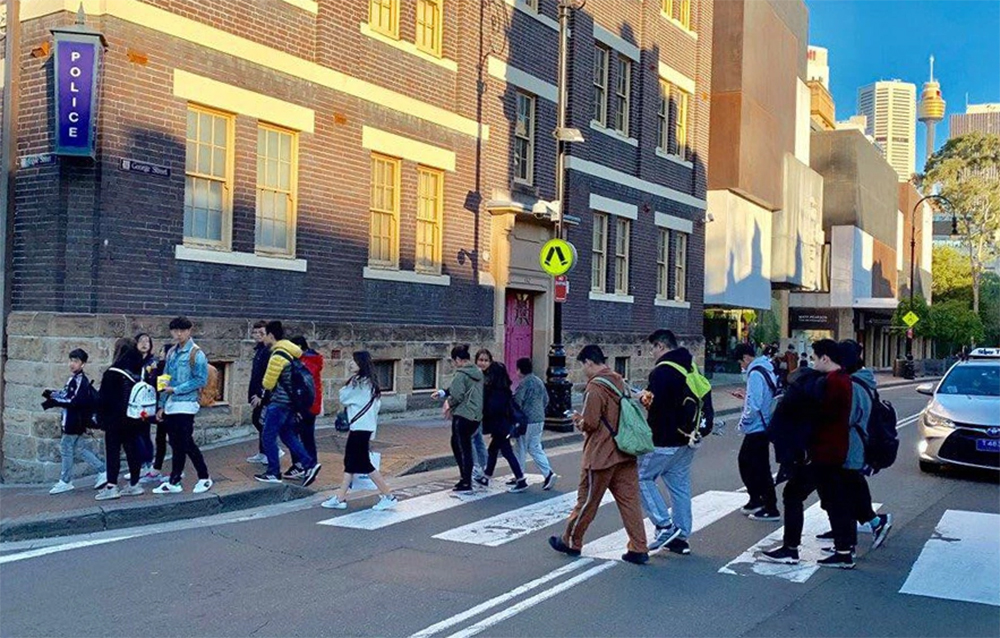 |
Crossing the street at designated areas is a way of respecting public culture. Photo: NVCC |
Crossing the street at designated areas is a way of respecting public culture. Photo: NVCC
According to Lam Nguyen, actions like talking loudly, not queuing, smoking in public, damaging artifacts, and jaywalking are common among Vietnamese tourists, demonstrating a lack of respect for public etiquette. When traveling in groups of acquaintances, they tend to be noisy, especially in restaurants.
"Vietnamese tourists often congregate to smoke in inappropriate areas, such as in front of restaurants. These areas often have outdoor seating to attract customers, and many passersby are hesitant to enter because of this," Lam says. These seemingly trivial actions can cause inconvenience to both the establishment and other patrons.
Linh Huong



